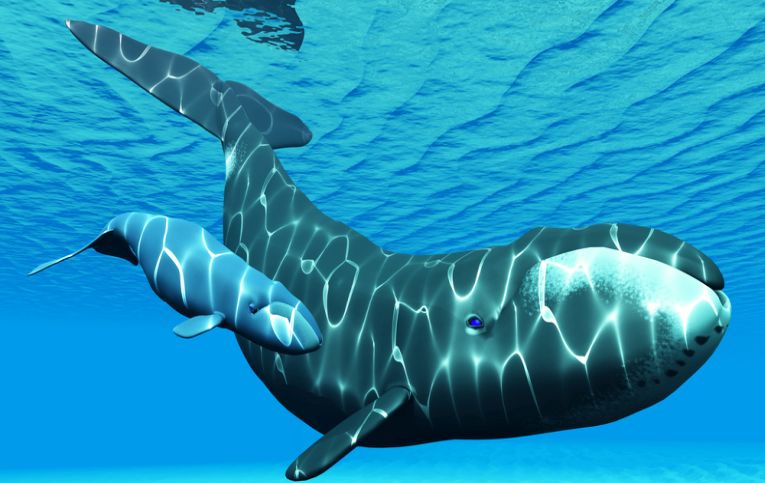The bowhead whale, Balaena mysticetus has a long history of conflict with humans, as we have noted. The current thinking about the enigmatic species is a little different. Longevity is something we have proved in the whale by the scars and even bits of harpoons from 200 years ago. How the other creatures of the planet have managed to live long, if not prosper, has created jealousy in our own species.
From tortoises to naked mole rat, the genome specialists have been hunting the nucleic acid combinations that code for medical extension of our lives. The longer we live, the more we pollute the environment, so the exercise could be counter-productive. Shorter lives could well prove more suitable, like the mayfly or the shrew, or the minke whale. They have managed for eons without long lives.
The bowhead whale genome is close to being resolved completely, but meanwhile 2 of its longevity genes have been plotted. These are the codes for cancer resistance and repair to DNA damage. No heart disease or cancer (to date) has been found for the bowhead, the longest-lived cetacean. This unique beast simply ploughs on with its work of turning over the Arctic Ocean sediments!
In the University of Liverpool’s Integrative Genomics of Ageing Group, Joao Pedro de Maghaeles believes he has the researchers’ answer by placing these specific nucleotides from the whale into experimental mice. Liverpool have support in the age-study project from Vadim Gladyshev from Harvard who recently published on 50 mammal species’ genes. The ageing project has great support in other nations such as Korea, Denmark as well as various other US sources, whence its financing is derived.
We can hope that the declining whale population can also receive better conservation for its busy but unknown life-style in the busier areas of the Arctic (the video in our first reference above is excellent for this). We almost lost this species before, so we certainly must conserve it now, as it proves once more that animals are necessary in our lives for more than simply food and our other greeds.










